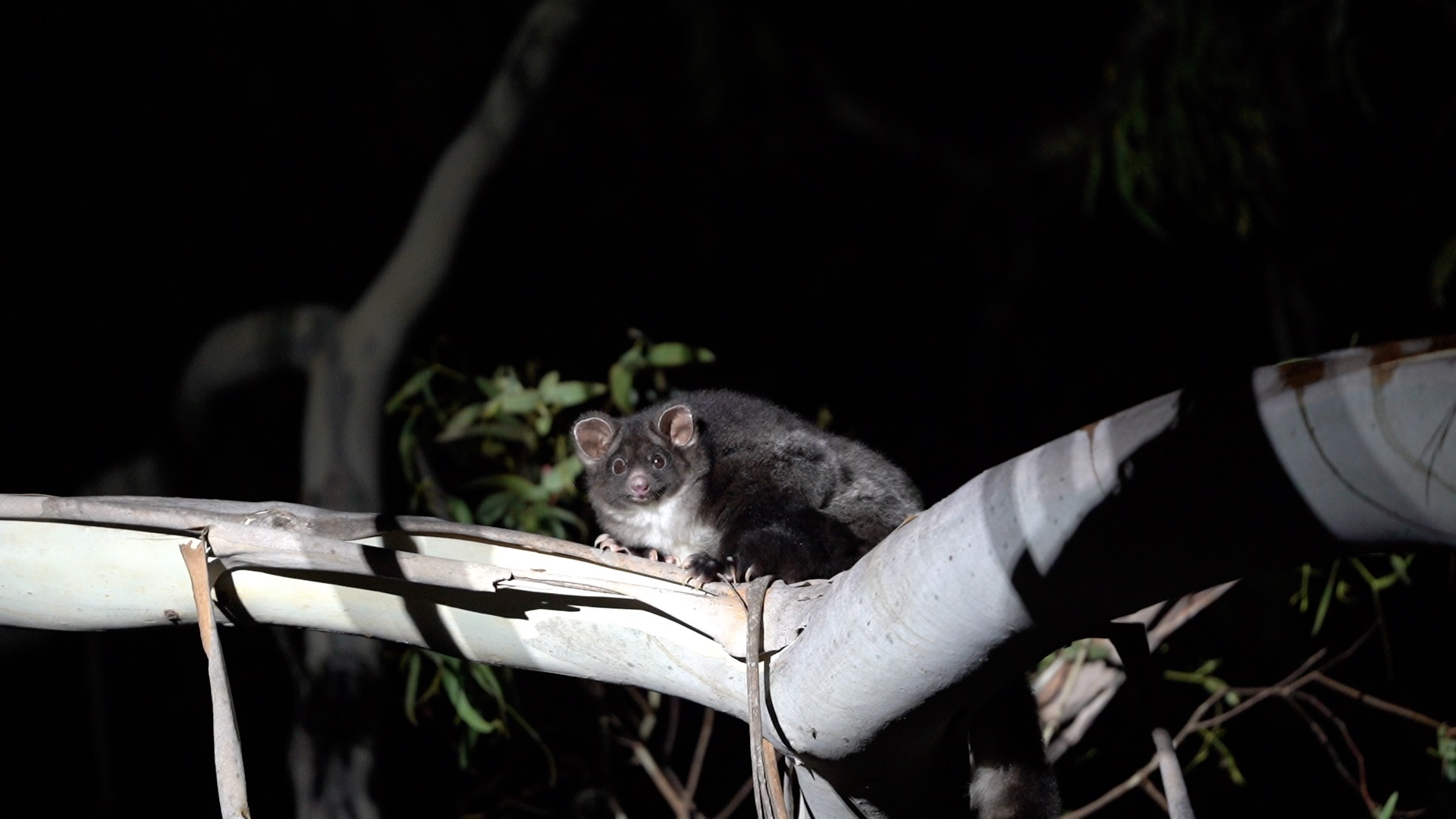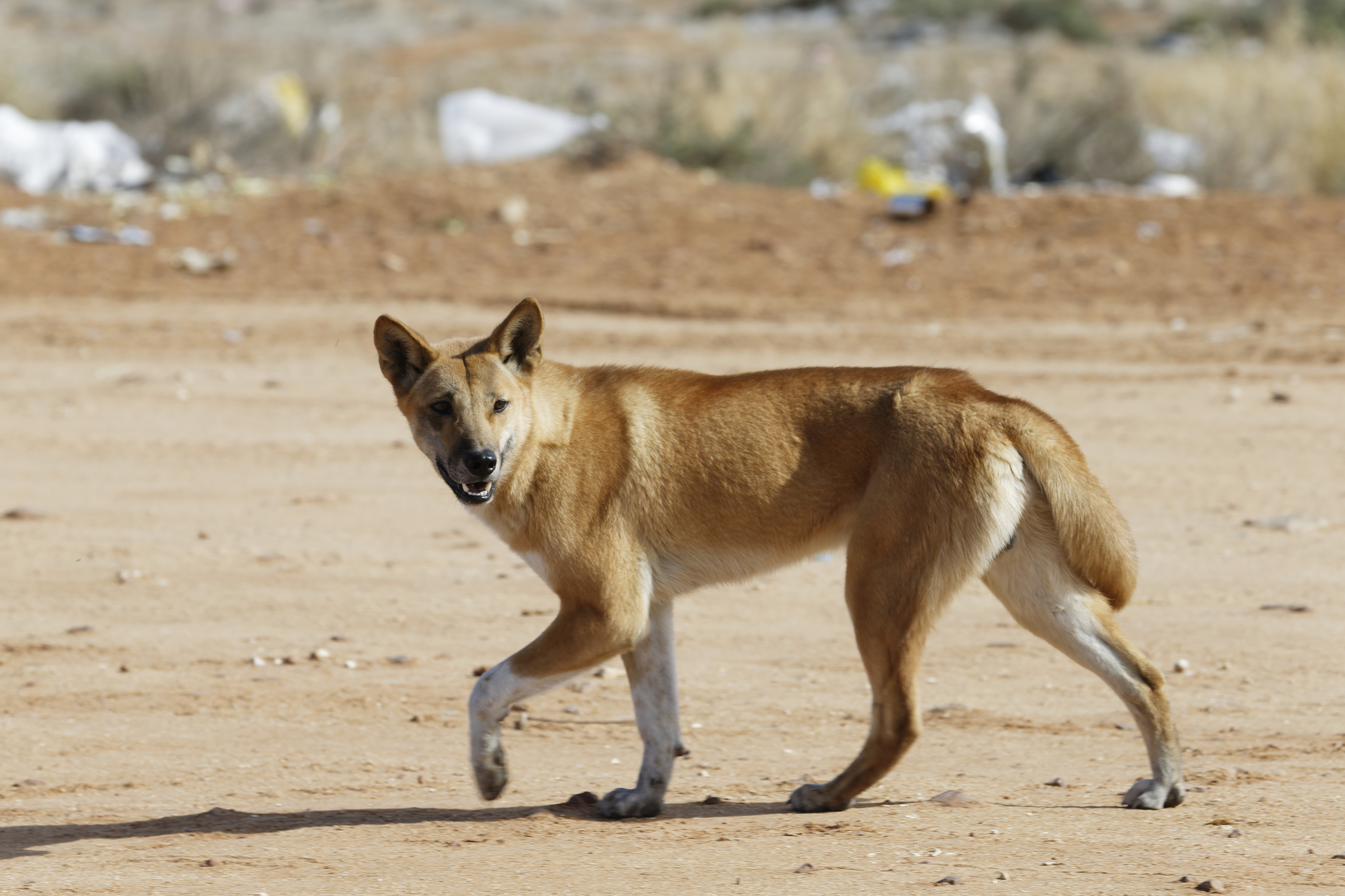Five hours south of Sydney, in the high country of south-east New South Wales, Glenbog State Forest sits quietly on the edge of the escarpment. At first glance, it looks like many other native forests. But Glenbog is not just any forest. It is one of the few remaining high-elevation “cloud forests” in southern NSW. These are places where geography...
In the early hours of February 6, a 7.8-magnitude earthquake struck near the Türkiye-Syria border, collapsing buildings and sending people into dark and stormy streets. Just hours later, when it was thought the worst of the aftershocks had passed, a second 7.5-magnitude quake hit. Their combined impacts tragically killed more than 50,000 people and an unknown number of pets and other animals.
Members of the HSI Global disaster response team were quickly on the ground in Antakya, one of the worst hit cities in south-eastern Türkiye, searching for pets to be reunited with distraught survivors.
With rough conditions, reinforcements from around the world were called in and teams frequently rotated out. Help from HSI Australia staff was requested for the third wave of the response, with our animal welfare campaigner Georgie Dolphin accompanying me as we headed off from Sydney at the beginning of March.
Surreal doesn’t come close to describing driving into the destruction in and surrounding Antakya, the devastation we were witnessing bordering on unfathomable. We made our way to the park in the centre of the city where the emergency clinic HSI was working with was based and began to set up our tents.
The clinic was being run by a group of young vets and their friends, some who had been pulled from the rubble next to lost loved ones themselves. They had dropped everything and been working non-stop from the campsite for weeks on end, miraculously maintaining positivity and energy in the face of a relentless flow of animals needing care.
Almost immediately after we set up there was a flurry of attention near the clinic entrance. A man previous HSI teams had been helping search for his daughter’s cat for weeks on end had arrived… and the cat had been found! It was a real lift from the surrounding scenes, and a great way to kick things off.
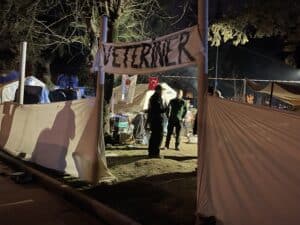
And so began a week of unpredictable days with Georgie and I working with colleagues from HSI’s US, Latin American, and European offices. With dozens of cases on the go at all times we had to be flexible as we drove around the ruined city, juggling the day’s plans with new requests for help from locals returning for their possessions before damaged buildings were demolished.
The language barrier and people’s desperation meant we often arrived at unexpected scenes, with the veterinary expertise of Andrea from the HSI Latin American office proving invaluable. We found ourselves in a situation where we were called out to check on an injured dog that wasn’t eating only to be approached by several members of a displaced community seeking treatment for their dogs, cats and birds. With the city’s veterinary businesses destroyed, help was desperately needed.
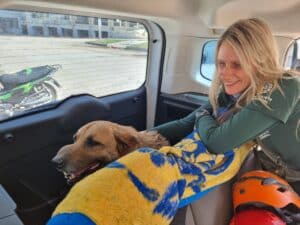
Türkiye is famous for its street cats and their numbers were truly a sight to behold. No matter where we went there were inevitably hungry cats looking for food, a sad reality with the people they relied on no longer able to help.
Turkish people have a tremendous respect for animals and cats in particular, caring for them as a community as if they were their own pets. It was beautiful to see, but created difficulties for us determining whether or not they required rescue—almost every cat looked and acted like a loved pet!
If an animal was injured, we’d do all we could to either pick up or trap it and bring it in for care. Otherwise, as the vet clinic had very limited capacity, only pets were being accepted. We would match them using case photos in the field as well as by scanning for microchips, leaving food and water wherever we went to keep surviving strays going.
Some of the most heart-breaking moments were playing the recorded calls of cat owners pleading for their pets to come to them through USB speakers into damaged buildings, a method we used with great success but that involved a desperation that will stick with us forever. It was impossible not to put ourselves in their shoes as we played their emotion-thickened voices on repeat.
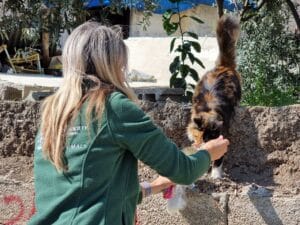
Another difficulty we faced was the danger in the fragility of buildings still standing, with the threat of aftershocks or another earthquake too great to enter many. Most requests for search and rescue were for several floors up in heavily damaged apartments and there was often no way for us to safely enter them.
Fortunately (when wind conditions permitted) we were able to use HSI Australia’s drone to scan inaccessible apartments for signs of life, greatly speeding up our search abilities and allowing us to help out with as many cases as possible. When we could prove an animal was alive inside, we could alert the authorities to retrieve it.
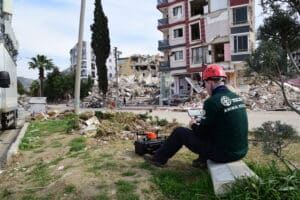
Along with the cats, Antakya’s street dogs were extremely friendly and well looked after, and the dozen or so that lived in the park we were camping in provided much needed spirit boosts at the start and end of each day. They’d be waiting for us in the morning and be lying around the fire at night, accepting us into the pack and guarding our tents when we weren’t around.
It was incredibly hard to leave them and all of our new friends when our deployment was complete, but an absolute privilege to be able to try to make a difference with a team of strong and kind-hearted colleagues from around the world. As hard as it was to see scenes of such devastation, we are so grateful to have been able to make a difference to people and animals who have suffered such immense loss.
Thank you for your support to help make this possible. HSI continues to support the long recovery ahead for those we worked with in Antakya, with all of us involved developing a connection with the country and its people and animals that will never be forgotten.
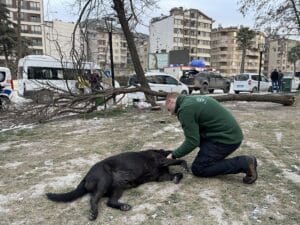
If you would like to make a difference, please consider donating to HSI Australia Your generosity can help us continue our vital work to protect animals and their habitats around the world.
Thank you for your support.

